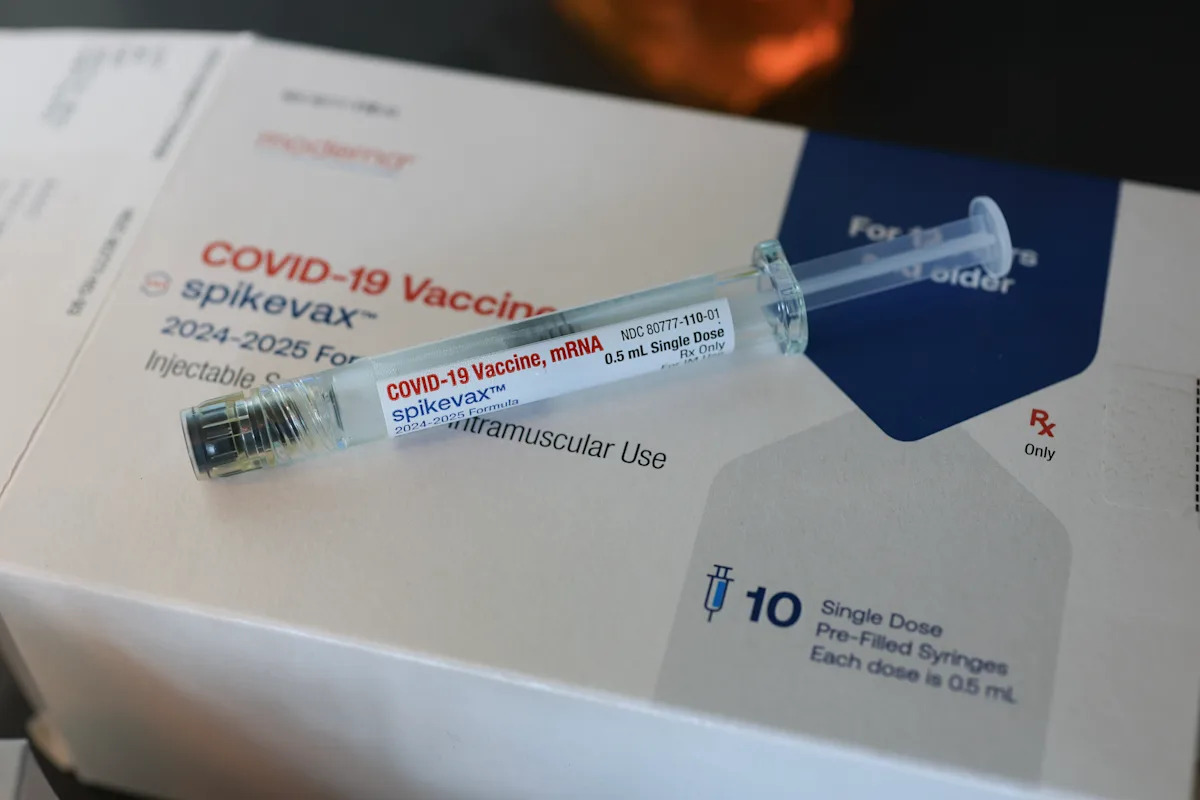The Food and Drug Administration on Wednesday announced new federal COVID-19 vaccination guidance that places new restrictions on how millions of Americans will be able to access shots as several states grapple with vaccination challenges. late summer splash in cases of coronavirus.
Secretary of Health and Human Services Robert F. Kennedy Jr.longtime vaccine skeptic, stated new rules in a social media post Wednesday. The department has officially revoked the emergency use authorization that has allowed the vaccines to be widely available since they first hit the market in late 2020. At the same time, HHS issued new, non-emergency authorizations for four updated vaccines that are designed to protect against strains of the virus currently circulating in the United States.
“The American people demanded science, safety and common sense. This system provides all three,” Kennedy wrote.
Some public health experts strongly disagreed with the move, arguing it would make it harder for people to protect themselves from a virus that still causes more than 100 deaths in the USA every week.
Who can get the vaccine now?
The most important takeaway from the new recommendations is that most people who want a COVID vaccine can still get one. But there are important new protocols that mean different groups of Americans will have different rules for accessing the vaccines for the first time since they became widely available. Here are the specific rules for different groups.
Elderly people: For those 65 and older, the rules have not changed. They can still get any of the available vaccines at the same locations they previously received them.
Adults and children aged 5 to 64 years: The biggest change under the new guidelines is that people who are not elderly are now divided into high- and medium-risk categories when it comes to how they can access vaccines.
Anyone with an underlying medical condition that increases the risk of severe infection or death from COVID can still get the vaccine at a pharmacy, doctor's office or other location that administers the vaccine. list Conditions that place a person at high risk include chronic lung disease, heart disease, diabetes, chronic kidney disease, immunocompromised conditions, and obesity.
Those without an underlying medical condition can now only receive the vaccine after consulting their doctor. Pharmacies and other vaccination sites can no longer provide vaccinations to those who are not considered high-risk.
Small children: The end of the emergency authorization means that children under age 5 will only have one shot of Moderna's Spikevax vaccine. Spikevax is approved only for children with an underlying medical condition. There is no longer a COVID vaccine authorized for children under 5 years of age who are not at high risk, although in some cases doctors may decide to give the shot “off label.”
How did medical experts react?
Some of the country's most prominent medical groups have criticized the new vaccination guidelines for creating what they say are unnecessary barriers to access to life-saving preventive care.
“The FDA has made a decision that flies in the face of the evidence, seriously undermines confidence in evidence-based policy, and dangerously restricts access to vaccines, denying millions of Americans a choice of protection and increasing the risk of severe outcomes from COVID,” Infectious Diseases Society of America (IDSA) wrote in a statement Wednesday.
President American Academy of Pediatrics called the new rules “deeply troubling” and said that “any barrier to COVID-19 vaccination creates dangerous vulnerabilities for children and their families.”
Kennedy said that despite the new restrictions, vaccines are “available to all patients who choose them in consultation with their doctors.”
But critics argue that this may not be entirely true. More than 100 million Americans no access the primary care provider they will need to see to get the vaccine if they are not considered high risk. It is also not guaranteed that all doctors will choose to give the vaccine “off-label” to healthy patients or that insurance will cover the cost of the vaccine in these cases, IDSA said. There are also questions about how other vaccination sites will confirm that someone does have a high-risk condition that makes them eligible to receive the shot outside of a doctor's office.
What's going on with COVID now?
The FDA said it decided to update its vaccine recommendations because the threat of the virus has significantly decreased and COVID has become a “manageable” public health problem.
It is true that the worst days of the pandemic are long past, but the virus still poses a threat, especially to medically vulnerable people. More than 14,000 people According to the Centers for Disease Control and Prevention, there were deaths in 2025 from COVID-related illnesses. The number of COVID-19 cases in the country has increased with spikes in recent weeks, caused by a new “layered” variant of the virus.
Experts at the FDA and other health organizations continue to say the vaccines provide strong protection against the virus.








